Publications
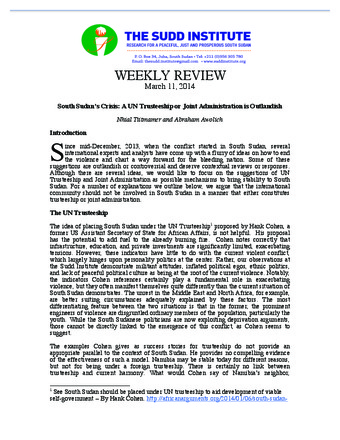
South Sudan’s Crisis: A UN Trusteeship or Joint Administration is Outlandish
Authors: Abraham Awolich, Nhial Tiitmamer
Organization: The Sudd Institute
Type: Weekly Reviews
Date: 11/03/2014
Since mid-December, 2013, when the conflict started in South Sudan, several international experts and analysts have come up with a flurry of ideas on how to end the violence and chart a way forward for the bleeding nation.
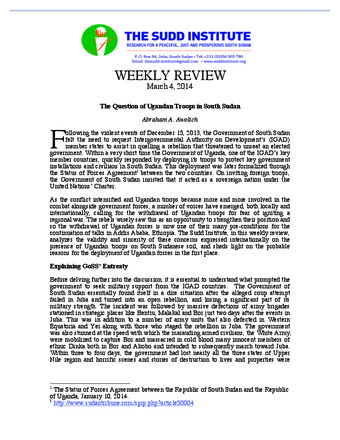
The Question of Ugandan Troops in South Sudan
Author: Abraham Awolich
Organization: The Sudd Institute
Type: Weekly Reviews
Date: 04/03/2014
Following the violent events of December 15, 2013, the Government of South Sudan felt the need to request Intergovernmental Authority on Development’s (IGAD) member states to assist in quelling a rebellion that threatened to unseat an elected government.
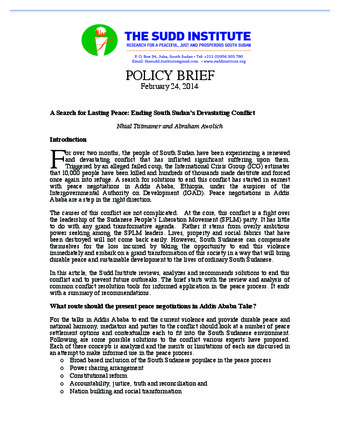
A Search for Lasting Peace: Ending South Sudan’s Devastating Conflict
Authors: Abraham Awolich, Nhial Tiitmamer
Organization: The Sudd Institute
Type: Policy Briefs
Date: 24/02/2014
For over two months, the people of South Sudan have been experiencing a renewed and devastating conflict that has inflicted significant suffering upon them. Triggered by an alleged failed coup, the International Crisis Group (ICG) estimates that 10,000 people have been killed and hundreds of thousands made destitute and forced...
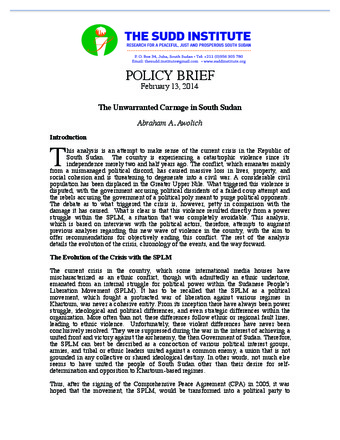
The Unwarranted Carnage in South Sudan
Author: Abraham Awolich
Organization: The Sudd Institute
Type: Policy Briefs
Date: 13/02/2014
This analysis is an attempt to make sense of the current crisis in the Republic of South Sudan. The country is experiencing a catastrophic violence since its independence merely two and half years ago. The conflict, which emanates mainly from a mismanaged political discord, has caused massive loss in lives,...
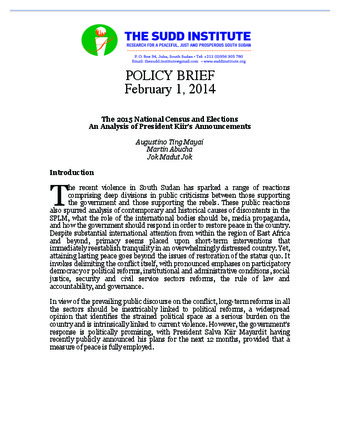
The 2015 National Census and Elections: An Analysis of President Kiir’s Announcements
Authors: Martin Abucha, Jok Madut Jok, Augustino Ting Mayai
Organization: The Sudd Institute
Type: Policy Briefs
Date: 01/02/2014
The recent violence in South Sudan has sparked a range of reactions comprising deep divisions in public criticisms between those supporting the government and those supporting the rebels. These public reactions also spurred analysis of contemporary and historical causes of discontents in the SPLM, what the role of the international...
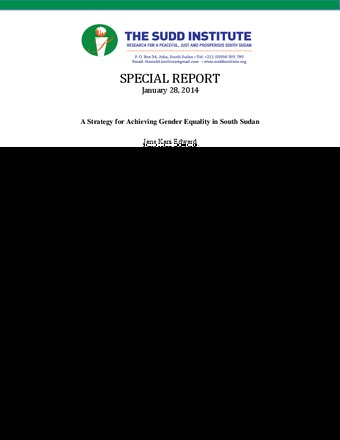
A Strategy for Achieving Gender Equality in South Sudan
Author: Jane Kani Edward
Organization: The Sudd Institute
Type: Special Reports
Date: 28/01/2014
This study seeks to examine how structural factors, customary laws and traditional practices, and economic hardships shape women’s status and hinder their effective participation in leadership positions in South Sudan. By doing so, the study identifies some of the socio-cultural, economic, legal, educational and political conditions, which lead to gender...
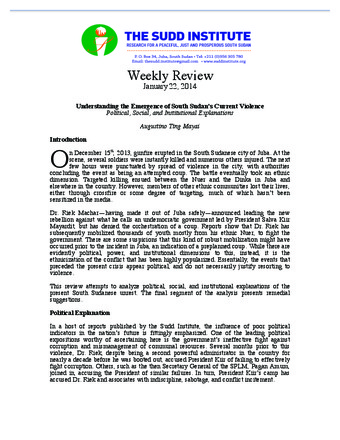
Understanding the Emergence of South Sudan’s Current Violence: Political, Social, and Institutional Explanations
Author: Augustino Ting Mayai
Organization: The Sudd Institute
Type: Weekly Reviews
Date: 22/01/2014
On December 15th, 2013, gunfire erupted in the South Sudanese city of Juba. At the scene, several soldiers were instantly killed and numerous others injured. The next few hours were punctuated by spread of violence in the city, with authorities concluding the event as being an attempted coup.
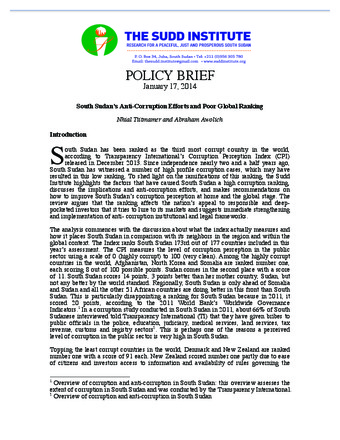
South Sudan’s Anti-Corruption Efforts and Poor Global Ranking
Authors: Abraham Awolich, Nhial Tiitmamer
Organization: The Sudd Institute
Type: Policy Briefs
Date: 17/01/2014
South Sudan has been ranked as the third most corrupt country in the world, according to Transparency International’s Corruption Perception Index (CPI) released in December 2013. Since independence nearly two and a half years ago, South Sudan has witnessed a number of high profile corruption cases, which may have resulted...
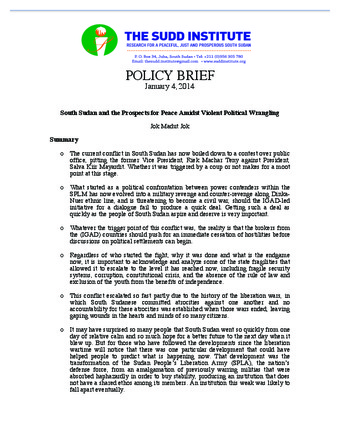
South Sudan and the Prospects for Peace Amidst Violent Political Wrangling
Author: Jok Madut Jok
Organization: The Sudd Institute
Type: Policy Briefs
Date: 04/01/2014
The unfolding unrest in South Sudan, beginning with the events of December 15th, 2013 in Juba when fighting broke out within the presidential guard and had spread to Greater Upper Nile within two days, may not have been exactly predictable, but it was not entirely surprising.
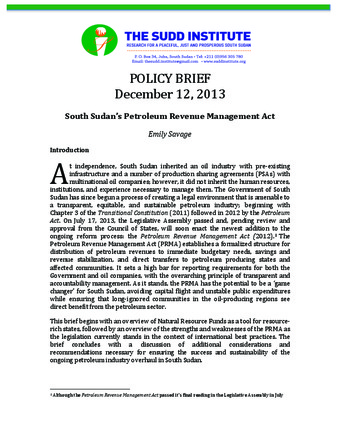
South Sudan’s Petroleum Revenue Management Act
Author: Emily Savage
Organization: The Sudd Institute
Type: Policy Briefs
Date: 12/12/2013
At independence, South Sudan inherited an oil industry with pre-existing infrastructure and a number of production sharing agreements (PSAs) with multinational oil companies; however, it did not inherit the human resources, institutions, and experience necessary to manage them.
